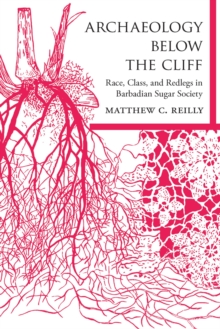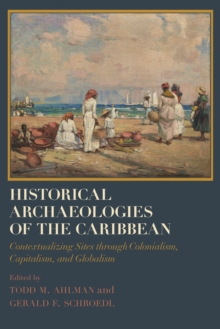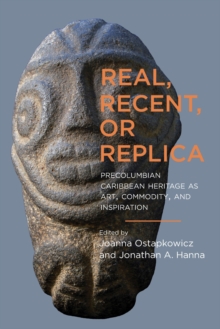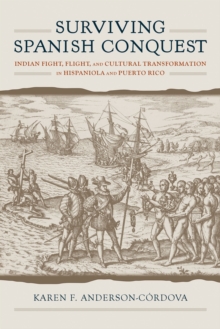
Rethinking Puerto Rican Precolonial History EPUB
by Rodriguez Ramos Reniel Rodriguez Ramos
Part of the Caribbean Archaeology and Ethnohistory series
EPUB
Please note: eBooks can only be purchased with a UK issued credit card and all our eBooks (ePub and PDF) are DRM protected.
Description
Focuses on the successive indigenous cultures of Puerto Rico prior to 1493
The history of Puerto Rico has usually been envisioned as a sequence of colonizations-various indigenous peoples from Archaic through Taíno were successively invaded, assimilated, or eliminated, followed by the Spanish entrada, which was then modified by African traditions and, since 1898, by the United States. The truth is more complex, but in many ways Puerto Rico remains one of the last colonies in the world. This volume focuses on the successive indigenous cultures of Puerto Rico prior to 1493.
The history of Puerto Rico has usually been envisioned as a sequence of colonizations-various indigenous peoples from Archaic through Taíno were successively invaded, assimilated, or eliminated, followed by the Spanish entrada, which was then modified by African traditions and, since 1898, by the United States. The truth is more complex, but in many ways Puerto Rico remains one of the last colonies in the world. This volume focuses on the successive indigenous cultures of Puerto Rico prior to 1493.
Traditional studies of the cultures of indigenous peoples of the Caribbean have centered on ceramic studies, based on the archaeological model developed by Irving Rouse which has guided Caribbean archaeology for decades. Rodríguez Ramos departs from this methodology by implementing lithics as the primary unit for tracing the origins and developments of the indigenous peoples of Puerto Rico. Analyzing the technological styles involved in the production of stone artifacts in the island through time, as well as the evaluation of an inventory of more than 500 radiocarbon dates recovered since Rouse's model emerged, the author presents a truly innovative study revealing alternative perspectives on Puerto Rico's pre-Columbian culture-historical sequence. By applying a multiscalar design, he not only not only provides an analysis of the plural ways in which the precolonial peoples of the island interacted and negotiated their identities but also shows how the cultural landscapes of Puerto Rico, the Antilles, and the Greater Caribbean shaped and were shaped by mutually constituting processes through time.
Information
-
Download - Immediately Available
- Format:EPUB
- Pages:267 pages
- Publisher:University of Alabama Press
- Publication Date:19/07/2010
- Category:
- ISBN:9780817383275
Information
-
Download - Immediately Available
- Format:EPUB
- Pages:267 pages
- Publisher:University of Alabama Press
- Publication Date:19/07/2010
- Category:
- ISBN:9780817383275










